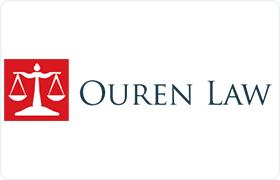Grandview Adoption Lawyer, Washington
Sponsored Law Firm
-
 x
x

Click For More Info:
-
Ouren Law
4101 South Union Street Kennewick, WA 99337» view mapDivorce & Family Law Dedicated. Straightforward. Tough.
With more than a decade of experience, Attorney Ouren has helped many clients achieve successful results in their family law and criminal law matters.
800-971-6601
Not enough matches for Grandview Adoption lawyer.
Below are all Grandview Divorce & Family Law lawyers.
Michael Leon Everett
Family Law, Divorce & Family Law, Personal Injury
Status: In Good Standing Licensed: 50 Years
Michael L. Everett
Alimony & Spousal Support, Child Support, Adoption, Bankruptcy, Child Custody
Status: In Good Standing Licensed: 50 Years
 Kimberly Ouren Kennewick, WA
Kimberly Ouren Kennewick, WA Practice AreasExpertise
Practice AreasExpertise
